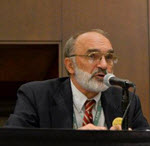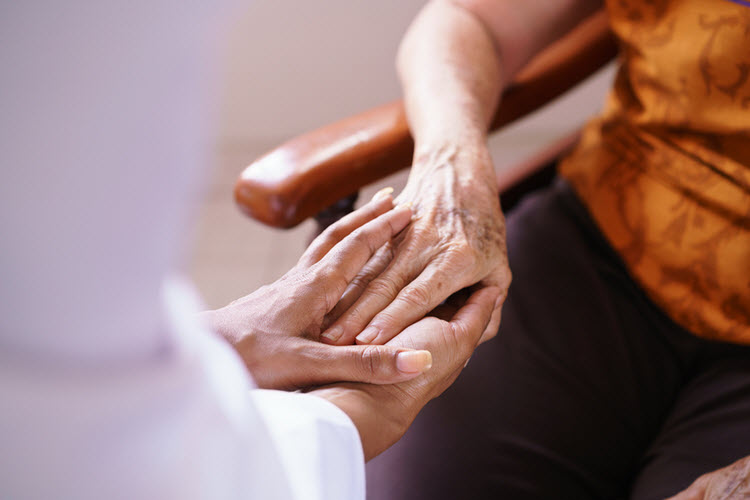Why is it so hard to get access in New Jersey?
In states where marijuana is legal, the elderly are the fastest growing demographic of marijuana users. And with good reason. Marijuana helps with the typical problems of aging: chronic pain (think arthritis), degenerative disc disease, pain associated with other conditions and side effects of other treatments.
“In my experience with one client, marijuana is the only drug that helped. This client is dying, not eating, and was suffering from extreme nausea, so extreme that it disturbed sleeping at night. The client was distraught because three different prescription anti-nausea drugs had not worked. Marijuana is the drug that finally brought relief. Our care manager was able to get a liquid form of marijuana from which the client received immediate quality of life improvement and regained the ability to sleep at night.”
Ann King – Musza, Co-owner
Akin Care Senior Services
In addition, Ken Wolski of Coalition for Medical Marijuana NJ (CMMNJ) explains that as seniors get frailer, marijuana can be used as an appetite stimulant and to lift spirits. “It is safer than anti-depressants, alcohol, many script drugs and Over the Counter (OTC) drugs like acetaminophen which is known to cause liver disease. There is even some research that shows a synergistic effect between marijuana and analgesics. People taking 3-4 analgesics have been able to cut down on the amount needed with the right dosage of marijuana. A positive drug interaction.”
Here in New Jersey, the Medical Marijuana law passed in 2010 and it is estimated that several hundred thousand residents could benefit from it. However, the conditions to qualify and requirements to get legal access has resulted in only 10,000 ID cards being issued.
Current conditions to qualify in New Jersey:
There is a limited list of specific medical conditions that qualify you for marijuana in NJ. CMMNJ is working with other organizations to increase it.
- One year or less to live. People with this condition are underserved because doctors are reluctant to diagnose one year
- When conventional therapy no longer works for glaucoma, seizures, PTSD and muscle spasms
- HIV and Cancer when these diagnoses are associated with: chronic pain, wasting disease, nausea and vomiting
- Diseases that qualify include: MS, MD, ALS, Inflammatory bowel disease, including Crohn’s
Steps to legal access in New Jersey:
The biggest hurdle is finding a doctor that will give you a reference number. This doctor is responsible for managing you in the program and only about 1% of NJ doctors participate. Participating doctors can be found at the New Jersey Department of Health website. To apply, you are required to upload the following documentation:
- Passport photo
- NJ ID card (e.g. driver’s license)
- Proof of residency (e.g. utility bill)
- Payment for the ID card is $200.00 for two years. Low income individual’s need to upload proof to qualify for a payment of $20.00 for two years
Medical Marijuana Barriers
Doctor visits are not covered, you must pay out-of-pocket. In addition to finding a doctor that participates, you must have a bona fide Doctor/Patient relationship defined as:
- Four visits a year or undergo a complete medical history and physical with this doctor
- Required doctor visits every 3 months for a recommendation renewal
You can fulfill a recommendation in five Alternative Treatment Centers: Montclair, Woodbridge, Egg Harbor, Cranbury and Bellmawr. Medication must be paid out of pocket and the state limits NJ patient purchases to two ounces per month. The ID card and recommendation from your doctor is needed each time you visit an alternative treatment center and only one site has products like lozenges or topical oil.
These requirements make it difficult but not impossible to receive medical marijuana. However, older residents often can’t physically go to an Alternative Treatment Center, so a family member/caregiver must go in their place for each dosage. And that has its own set of barriers:
- The caregiver must have their own ID card which requires the same documentation as the patient. In addition to the fee for the ID, the caregiver must pay for a criminal background check.
- Only one caregiver per patient is allowed. If there is a husband and wife, they would need two different caregivers to pick up their dosage.
- Employees of Long Term Care(LTC) and Skilled Nursing Facilities(SNF), cannot manage medical marijuana medication. This means a family member/caregiver must go to the facility to give the dosage.
And according to Ken: “The biggest barrier is the generational taboo about marijuana that precludes most seniors from using it. Often the euphoria that comes with smoking marijuana is an uncomfortable feeling for this generation. Getting them to try using it may require a type that does not produce a euphoric feeling or having someone with experience talk them through the event so it is a positive one.”
For more information, please go to:
Disclaimer: The material in this blog is for educational purposes only. It is not intended to replace, nor does it replace, consulting with a physician, lawyer, accountant, financial planner or other qualified professional.
With thanks to my collaboration partner, Ken Wolski, RN, MPA.
 Ken is currently the Executive Director for the Coalition for Medical Marijuana–New Jersey, Inc. He has been a registered nurse (RN) since 1976, currently licensed to practice in New Jersey and Pennsylvania. Ken retired in 2006 from the State of New Jersey after 25 years of service with the Department of Human Services and the Department of Corrections as a Staff Nurse, Head Nurse, Supervisor of Nurses, Quality Assurance Coordinator and Health Services Manager. In addition to his state service, Ken worked for eight years in Acute Care Facilities as an Intensive Care Unit and Cardiac Care Unit (ICU/CCU) Nurse. Ken also worked as a Public Health Nurse for the City of Trenton
Ken is currently the Executive Director for the Coalition for Medical Marijuana–New Jersey, Inc. He has been a registered nurse (RN) since 1976, currently licensed to practice in New Jersey and Pennsylvania. Ken retired in 2006 from the State of New Jersey after 25 years of service with the Department of Human Services and the Department of Corrections as a Staff Nurse, Head Nurse, Supervisor of Nurses, Quality Assurance Coordinator and Health Services Manager. In addition to his state service, Ken worked for eight years in Acute Care Facilities as an Intensive Care Unit and Cardiac Care Unit (ICU/CCU) Nurse. Ken also worked as a Public Health Nurse for the City of Trenton

